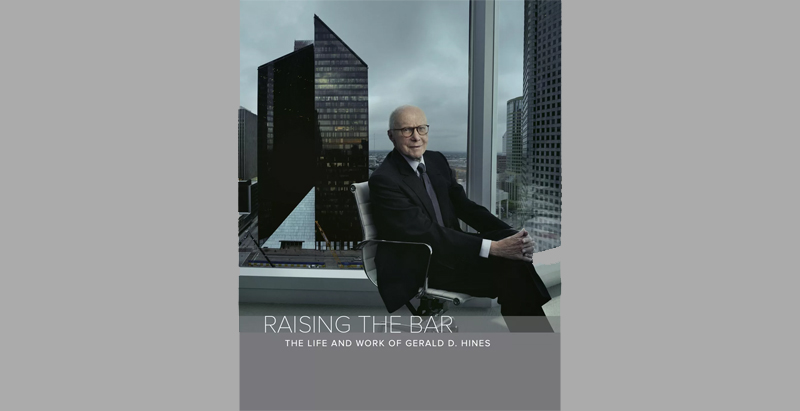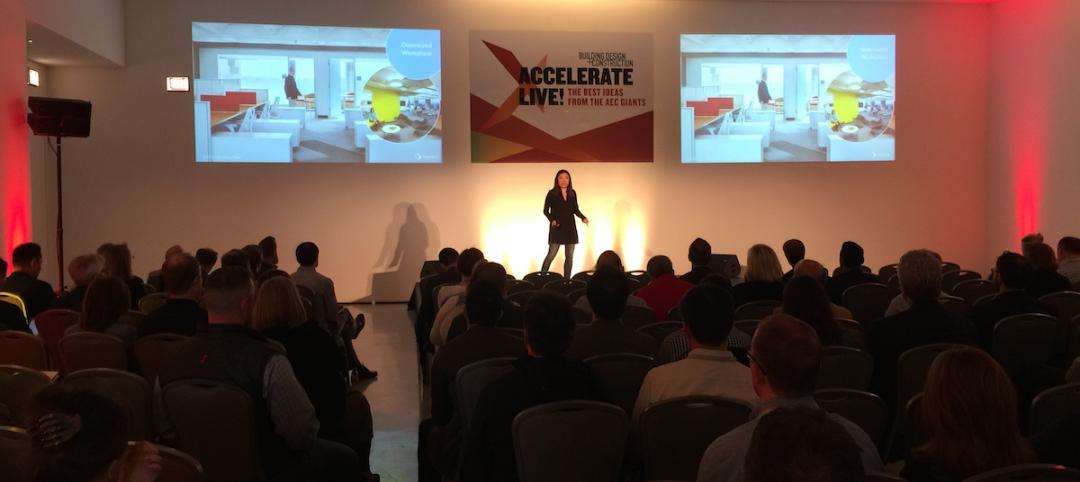My life is rather good, but it’s negligible compared to what that man has done for the art of architecture.” It’s not every day that a Pritzker Laureate heaps praise on a commercial real estate developer. But that’s just want happened during a 1998 lecture by the late postmodern design pioneer Philip Johnson.
Reminiscing about his collaborations with Gerald D. Hines, Johnson gushed over the Houston developer, calling Hines his “mentor and Medici,” adding, “Everything I’ve done, and everything I’ve been, I owe to Gerry Hines.”
Over a span of nearly 30 years, Hines and Johnson teamed to create more than a dozen groundbreaking commercial developments. The unlikely duo—Hines a Gary, Ind.-born math whiz who carried a slide rule in his suit jacket pocket all of his professional life; Johnson, a Harvard-educated, East Coast design elite best known for his Glass House and work with Ludwig Mies van der Rohe—threw the developer-architect rulebook out the window in creating some of Hines’ most daring—and successful—developments.
Most notable is Houston’s Pennzoil Place, with its twin, 36-story trapezoidal towers. Some credit the acclaimed project, completed in 1975, with sparking a reconnection between architecture and commercial real estate development in the U.S. “After Pennzoil, everyone wanted something other than a box, it seemed,” wrote architecture critic Paul Goldberger in 2012.
The Hines-Johnson alliance is one of countless stories chronicled by author Mark Seal in a new 464-page book about the developer’s career and life, “Raising the Bar: The Life and Work of Gerald D. Hines.”
The book offers a glimpse into the man who, fresh out of Purdue University in 1948 with a degree in mechanical engineering, road tripped to Houston with little money and no place to live. In less than a decade, Hines was developing warehouses and small office buildings throughout the city. By the late 1960s, he was working on what would become some of the city’s most iconic buildings: One Shell Plaza, The Galleria, and later Pennzoil Place and Williams Tower.
Through his stories and projects, Hines, who turns 91 this year, offers a wealth of lessons in real estate development. A few that stuck out:
Know how to spot an opportunity. Hines was one of the first developers to gamble on the idea of high-rise living in Houston when he planned the 16-story Willowick apartment complex in 1963. While others questioned his move, Hines had a trick up his sleeve. He spotted a niche market that wasn’t being served: housing for widows, who preferred the security and efficiency of high-rise living over single-family homes.
Take pride in ownership. While other developers profit from flipping their properties, Hines favors the build-and-hold strategy. “I didn’t think anybody built them better than I did,” he said. “I believed they’d be worth more in the future.”
Harness the power of great architecture. From Bruce Graham to Gyo Obata to Johnson, Hines invested in quality design because he realized the market was willing to pay for something that is truly unique. Great architecture makes good business sense.
For anyone who is fascinated by the world of commercial real estate development, “Raising the Bar” is a must-read. Let’s just hope that Hines’ lifelong passion for creating great buildings inspires a new breed of holistic, design-minded developers.
Related Stories
Adaptive Reuse | Jul 9, 2018
Work, park, live: Inside Cincinnati’s parking garage turned lifestyle hotel
The Summit hotel and conference center is a converted parking garage that was once a factory.
Accelerate Live! | Jun 24, 2018
Watch all 19 Accelerate Live! talks on demand
BD+C’s second annual Accelerate Live! AEC innovation conference (May 10, 2018, Chicago) featured talks on AI for construction scheduling, regenerative design, the micro-buildings movement, post-occupancy evaluation, predictive visual data analytics, digital fabrication, and more. Take in all 19 talks on demand.
Multifamily Housing | Jun 13, 2018
Multifamily visionaries: KTGY’s extraordinary expectations
KTGY Architecture + Planning keeps pushing the boundaries of multifamily housing design in the U.S., Asia, and the Middle East.
| Jun 11, 2018
Accelerate Live! talk: Regenerative design — When sustainability is not enough
In this 15-minute talk at BD+C’s Accelerate Live! conference (May 10, 2018, Chicago), HMC’s Eric Carbonnier poses the question: What if buildings could actually rejuvenate ecosystems?
| Jun 11, 2018
Accelerate Live! talk: The smart jobsite — Predictive visual data analytics for proactive project controls
In this 15-minute talk at BD+C’s Accelerate Live! conference (May 10, 2018, Chicago), a trio of experts in predictive visual data analytics presents how design-build giant Clayco has leveraged this technology to achieve production efficiency on several construction sites.
| Jun 11, 2018
Accelerate Live! talk: ‘AEC can has Blockchains?’
In this 15-minute talk at BD+C’s Accelerate Live! conference (May 10, 2018, Chicago), HOK’s Greg Schleusner explores how the AEC industry could adapt the best ideas from other industries (banking, manufacturing, tech) to modernize inefficient design and construction processes.
| Jun 11, 2018
Accelerate Live! talk: How advanced digital fabrication techniques are driving design innovation
In this 15-minute talk at BD+C’s Accelerate Live! conference (May 10, 2018, Chicago), SOM’s Lucas Tryggestad and Kyle Vansice present the firm’s 3D-printed building project and explore how digital fabrication is pushing design innovation.
Libraries | Jun 1, 2018
New library offers a one-stop shop for what society is craving: hands-on learning
Beyond lending books and DVDs, the Elkridge (Md.) branch library loans household tools like ladders, wheelbarrows, and sewing machines.
| May 30, 2018
Accelerate Live! talk: Seven technologies that restore glory to the master builder
In this 15-minute talk at BD+C’s Accelerate Live! conference (May 10, 2018, Chicago), AEC technophile Rohit Arora outlines emerging innovations that are poised to transform how we design and build structures in the near future.
| May 30, 2018
Accelerate Live! talk: Why the AEC industry must adapt to the Internet of Things boom
In this 15-minute talk at BD+C’s Accelerate Live! conference (May 10, 2018, Chicago), building systems expert Jeff Carpenter explores established and emerging IoT applications for commercial and institutional buildings, and offers a technology roadmap for navigating the IoT landscape.











